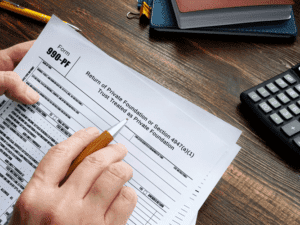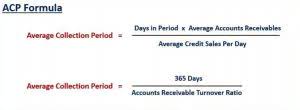
The cargo is weighed to confirm the dimensions initially provided are accurate, and the exporting and loading process begins. If you are shipping less than container load (LCL), your cargo will be loaded onto the truck and taken to a warehouse to consolidate your shipment with the other consignments sharing the same container. Any missing information will be confirmed, and the logistics company will reserve a spot on the designated ship for your cargo.
- Unless there are additional terms in the shipping agreement, buyers handle any freight charges for FOB shipping point goods from when the shipping vessel departs to when they receive their purchase.
- This single term has far-reaching implications on freight charges, shipping documents, and even payment terms, affecting every facet of the shipping process.
- Imagine the same situation above, except the agreement terms are for FOB destination.
- Manage store localization, shipping, duties, and compliance, all in one place.
- For instance, DDP may not be the best choice when importing expensive goods like electronics or jewelry because of the significant customs charges that must be paid at the border.
Does FOB shipping include insurance?
The passing of risks occurs when the goods are Bakery Accounting loaded on board at the port of shipment. Responsibility for the goods is with the seller until the goods are loaded on board the ship. FOB (Freight on Board) is a crucial shipping term that determines ownership transfer, cost responsibility, and liability during the shipping process. Understanding the differences between FOB Shipping Point and FOB Destination helps businesses make informed decisions on cost-effective shipping, risk management, and customs clearance.

“Freight On Board”
By specifying who is responsible for the goods at different points in the shipping process, FOB helps prevent misunderstandings and disputes. Whether you’re using FOB Origin or FOB Destination, understanding FOB’s meaning in shipping can help you effectively manage your operations and mitigate potential risks. FOB destination is a type of Incoterm (international commercial term) used in international trade. It means that a seller pays for all shipping costs and that a transaction is not complete until the goods reach the buyer’s destination undamaged. In FOB shipping points, if the terms include “FOB origin, freight collect,” the buyer pays for freight costs. If the terms include “FOB origin, freight prepaid,” the buyer is responsible for the goods at the point of origin, but the seller pays the transportation costs.
Which Is Cheaper, FOB or CIF?
While FOB shipping point does transfer risk to the buyer, it may affect a seller’s reputation and sales conversion rate. Shipping costs are reduced, but fewer buyers are willing to accept shipping point terms, especially on large or fragile orders. If a shipment is sent under FOB destination terms, the seller won’t record the sale until the goods reach the buyer’s location.
The Difference Between FOB and CIF
In its most basic meaning, freight on board is a term that signifies a seller is required to deliver goods to a buyer through a shipping vessel. When it comes to shipping, understanding the various terms and acronyms is crucial. If you’re involved in logistics or considering shipping goods, it’s essential to clearly understand what FOB means and how it affects your shipping arrangements. Free on Board (FOB) is a shipping term that determines when ownership and responsibility for goods transfer from the seller to the buyer. Under the right circumstances, FOB Destination can still strike a good balance for you and your buyer. Your buyer will have fewer responsibilities to fulfill, which allows them to enjoy a smoother shipping experience.

It is sometimes unclear whose responsibility it is to ensure insurance coverage. In FOB Origin, buyers must ensure they secure insurance as soon as their goods are loaded. Knowing when risk is passed will also help buyers and sellers manage their insurance effectively. Under FOB Origin, buyers can buy insurance once they assume the obligations. The buyer and seller must prepare and provide fob shipping point all the necessary customs documentation.

What is free or freight on board (FOB), and why should shippers understand this term?
- You see the term “FOB shipping point” in the contract but, unsure what it means, you sign away.
- In DAP, The seller remains liable up to the point where goods are delivered to the destination of the buyer.
- This type of shipping contract is more flexible than a CIF because the buyer can negotiate a cheaper price for the freight and insurance with a forwarder of their choice.
- This means that the seller is responsible for delivering the dresses to the freight carrier’s terminal in Italy and paying the freight costs in advance.
- This delay in revenue recognition can impact the seller’s cash flow and financial reporting, as the income from the sale is not realized until the delivery is complete.
Also, under FOB destination conditions, the seller is liable for the merchandise’s transportation costs. These provisions outline the point when responsibility for risk of loss shifts to the buyer, who covers the freight charges, delivery location and time, and the payment terms for the shipments. FOB on an invoice refers to Free on Board, an Incoterm that indicates which party is responsible for paying the cost of transporting goods in international trade. Receivers may be under the assumption FOB implies shippers bear the responsibility of liability and payment. However, the use of the term also includes additional stipulations that allow for the determination of the responsible payer for freight costs, ownership of freight while in transit and liability. Buyers can choose their own freight forwarders, negotiate better shipping rates, and decide on the best routes for their goods.
Other FOB Terms

Ultimately, the choice of QuickBooks FOB shipping term depends on the specific needs and requirements of the business. It’s crucial to carefully review the sales contract and understand the terms and conditions of the FOB shipping agreement before making a decision. By doing so, businesses can ensure they select the most suitable shipping terms to manage their costs and risks effectively. FOB Origin dictates that the buyer assumes responsibility for the goods as soon as they are loaded onto the carrier at the point of origin. This impacts shipping costs, risks, and the logistics process, as the buyer must manage these aspects from the point of origin.
